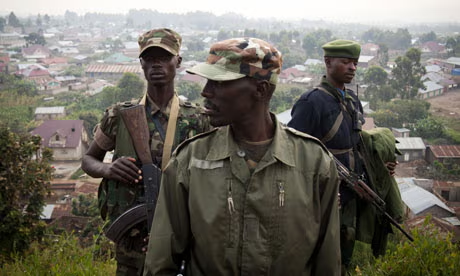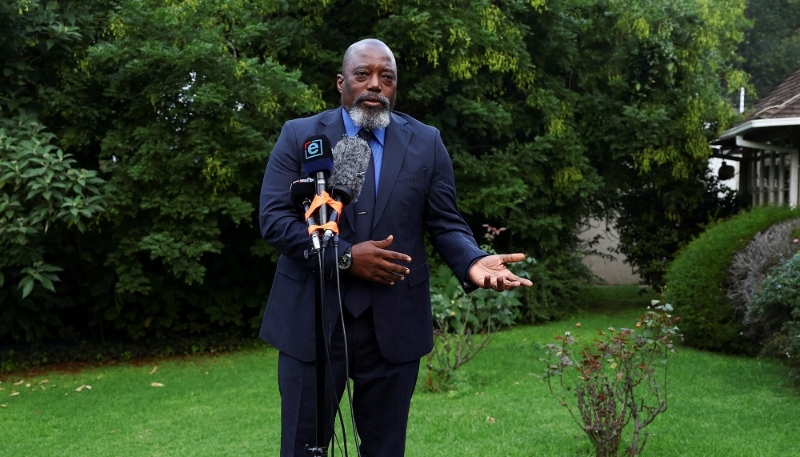Already a subscriber? Make sure to log into your account before viewing this content. You can access your account by hitting the “login” button on the top right corner. Still unable to see the content after signing in? Make sure your card on file is up-to-date.
The Democratic Republic of Congo has officially suspended former President Joseph Kabila’s political party and has accused the ex-leader of high treason over alleged ties to the Rwandan-backed M23 rebel group.
Some shit you should know before you read: If you’re unaware, there’s an ongoing war in the DRC that goes back to 2012, when the M23 rebels broke off from the Congolese army. At the time, M23 accused the government of failing to honor a peace agreement. The conflict is rooted in ethnic tensions, political power struggles, and control over the region’s vast mineral wealth, which includes trillions of dollars worth of rare earth materials such as cobalt, gold, and tin. Rwanda is accused of backing M23 by providing military support, weapons, and logistical assistance, allegedly profiting from the illegal export of these minerals. Despite the accusations, Rwanda denies any involvement, insisting its actions are focused on securing its border from armed groups operating within DRC. Throughout the war, M23 has been accused of severe human rights abuses, including mass executions, recruitment of child soldiers, and rape, leading to mass displacements and a dire humanitarian crisis. Two weeks ago, the US rolled out sanctions against Rwanda’s Minister of State over accusations that he was assisting M23.

What’s going on now: In response to the former President of the Democratic Republic of Congo, Joseph Kabila, returning to a rebel-held region in the east of the country, the Congolese government has launched a wave of punitive measures, accusing him of high treason and collusion with the Rwanda-backed M23 rebel group. Authorities suspended Kabila’s political party, the People’s Party for Reconstruction and Democracy (PPRD), citing its “ambiguous attitude” toward the rebel occupation of Congolese territory. The government also ordered the immediate seizure of Kabila’s assets and those of senior party officials, alleging their involvement in activities that threaten national sovereignty and constitutional order.

Kabila, who ruled the DRC from 2001 to 2019, had lived in South Africa for the past two years before secretly reentering the country through Goma, the capital of North Kivu province, which has been under M23 control since earlier this year. His return to such a strategically sensitive and contested area has drawn sharp criticism from Kinshasa, where officials suggest that his presence in Goma—where rebels are reportedly guaranteeing his security—amounts to an endorsement of their occupation.
Government spokesperson Patrick Muyaya reiterated that Kabila has ties to the Congo River Alliance (AFC), a political coalition associated with M23, and warned of legal consequences for what the state sees as a direct affront to its authority. Prosecutors have been ordered to begin investigations into alleged acts of treason, while key PPRD members now face travel restrictions.
As of now, Kabila has not issued a formal public statement in response to the Congolese government’s accusations, but his spokesperson, Barbara Nzimbi, announced on social media that he intends to address the nation “in the coming hours or days.”






